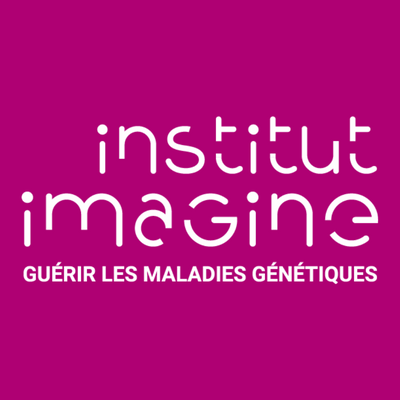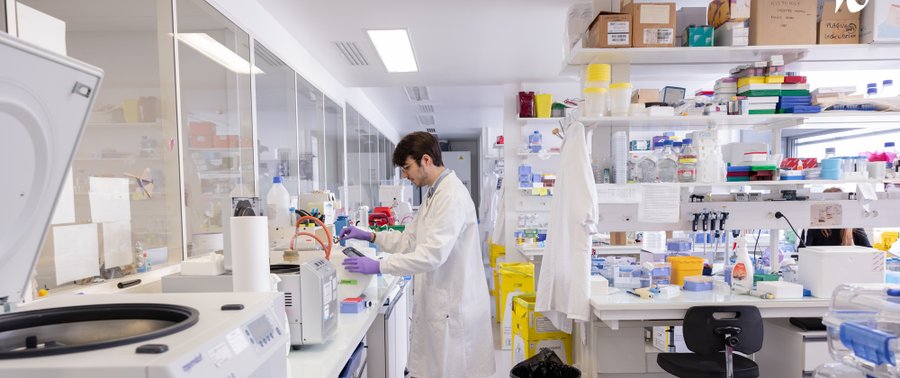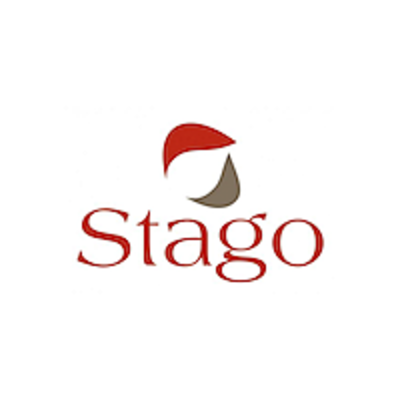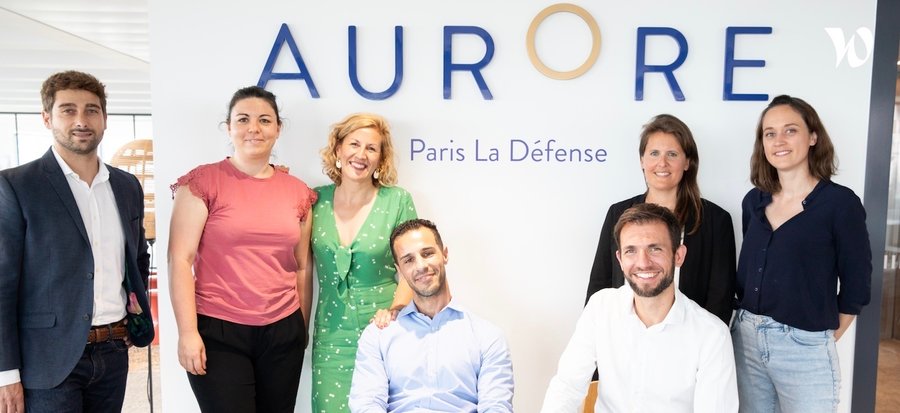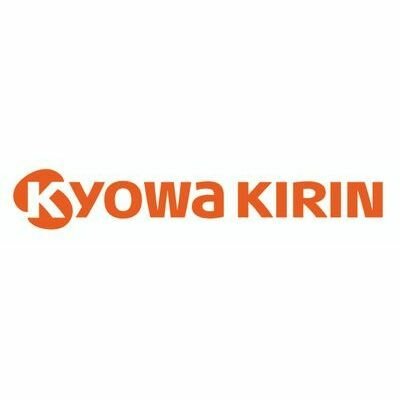Postdoctorant - Osteogenesis imperfecta (M/F)
Le poste
Descriptif du poste
The job offer is located in the Inserm 1163 laboratory at Imagine Institute, whose aim is to characterize and treat genetic diseases and offers facilities and platforms to carry out your research
A funding for 2 year post-doctoral position is available from May 2024 in the research group of Pr Valérie Cormier-Daire, “Molecular and physiopathological bases of osteochondrodysplasia” at the Imagine Institute (https://www.institutimagine.org/en/laurence-legeai-mallet-et-valerie-cormier-daire-186)
The research team is especially interested in studying the molecular, genetic, pathophysiological mechanisms and treatments of the different types of osteogenesis imperfecta (OI).
OI is now regarded as a spectrum of disorders characterized by various clinical features including bone deformities, low bone mass, brittle bones, dentinogenesis imperfecta (DI) and connective tissue manifestations. While OI is predominantly due to mutations in the two genes encoding type I collagen, novel disease genes have been identified in recessive and dominant OIs, encoding proteins regulating the post-translational modification, secretion and processing of type I collagen as well as those required for osteoblast differentiation and bone mineralization. The consequences include defects in intracellular trafficking and UPR in response to ER stress, abnormalities that affect collagen cross linking and finally disorders that affect ECM signaling. Altered TGFb signaling in both dominant and recessive OI matrix has emerged as a targetable pathway for therapy. Various in vivo studies on animal models of human low-bone-mass diseases have also shown that targeting sclerostin/wnt signaling allows to recover bone mass, restore bone strength, and prevent fragility fracture. However, the natural history, specific phenotypes and physiopathology associated with other disease genes than collagen type 1 are still poorly characterized and some of them are poor responder to antiresorptive bisphosphonate treatment.
The first aim of the project is to determine whether other matrix signaling pathways than TGFb or Wnt signaling are altered in rare forms of OI cases, using RNA sequencing and matrisome analysis in patient osteoblasts.
The second aim is to test the efficiency of neutralizing anti-TGF beta treatment. We hypothesize that low-dose treatment for a long time may be safe for children and efficient on height and bone mass. The effects of the treatment will be studied in murine osteogenesis imperfecta at early ages, including growth parameter follow up, histology, immunostaining on tissues, microCT and ex vivo studies to test the effects of Fresolimumab (neutralizing anti-TGFbeta) on bone and cartilage cells.
Profil recherché
Required skills: Expertise in molecular and cellular biology. Expertise in animal facilities and mouse experiments. The candidate must be able to work independently, be dynamic, communicate and work effectively with the team and internal and external collaborators. The candidate must be rigorous, organized and work methodically and critically. He/she must be interested in technological development and translational research. He/she must also be able to supervise and train students working with him/her on the project.
Type of contract and annual salary: 12-month fixed-term contract starting May 2024 (renewable up to 2 years) and salary depending on experience.
Applications should be sent in English including a cover letter, a detailed CV with publication list and references
Selected publications of the team:
1. Dubail J, Huber C, Chantepie S, Sonntag S, Tüysüz B, Mihci E, Gordon CT, Steichen-Gersdorf E, Amiel J, Nur B, Stolte-Dijkstra I, van Eerde AM, van Gassen KL, Breugem CC, Stegmann A, Lekszas C, Maroofian R, Karimiani EG, Bruneel A, Seta N, Munnich A, Papy-Garcia D, De La Dure-Molla M, Cormier-Daire V. SLC10A7 mutations cause a skeletal dysplasia with amelogenesis imperfecta mediated by GAG biosynthesis defects. Nat Commun. 2018, 9:3087
2.Doyard M, Bacrot S, Huber C, Di Rocco M, Goldenberg A, Aglan MS, Brunelle P, Temtamy S, Michot C, Otaify GA, Haudry C, Castanet M, Leroux J, Bonnefont JP, Munnich A, Baujat G, Lapunzina P, Monnot S, Ruiz-Perez VL, Cormier-Daire V. FAM46A mutations are responsible for autosomal recessive osteogenesis imperfecta. J Med Genet. 2018, 55: 278-284
3. Dubail J, Brunelle P, Baujat G, Huber C, Doyard M, Michot C, Chavassieux P, Khairouni A, Topouchian V, Monnot S, Koumakis E, Cormier-Daire V Homozygous loss-of-function mutations in CCDC134 are responsible for a severe form of osteogenesis imperfecta. J Bone Miner Res. 2020, 35 : 1470-1480
4. Marzin P, Thierry B, Dancasius A, Cavau A, Michot C, Rondeau S, Baujat G, Phan G, Bonnière M, Le Bourgeois M, Khraiche D, Pejin Z, Bonnet D, Delacourt C, Cormier-Daire V. Geleophysic and acromicric dysplasias: natural history, genotype-phenotype correlations, and management guidelines from 38 cases. Genet Med. 2021, 23 : 331-3
5. Guasto A, Dubail J, Aguilera-Albesa S, Paganini C, Vanhulle C, Haouari W, Gorría-Redondo N, Aznal-Sainz E, Boddaert N, Planas-Serra L, Schlüter A, Verdura E, Bruneel A, Rossi A, Huber C, Pujol A, Cormier-Daire V. Biallelic variants in SLC35B2 cause a novel chondrodysplasia with hypomyelinating leukodystrophy. Brain. 2022, 145 : 3711-3722
Envie d’en savoir plus ?
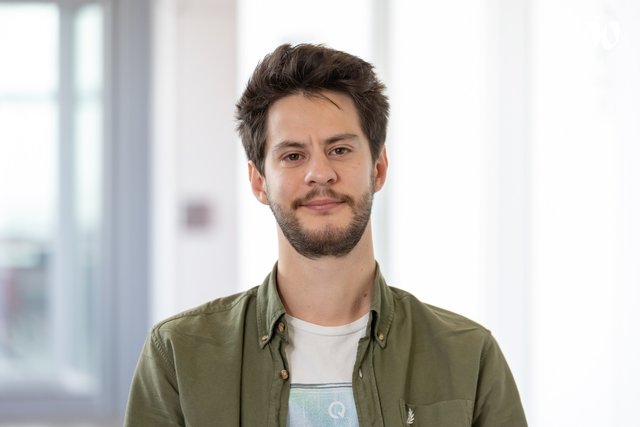
Rencontrez Guillaume, Doctorant en maladies génétiques cutanées
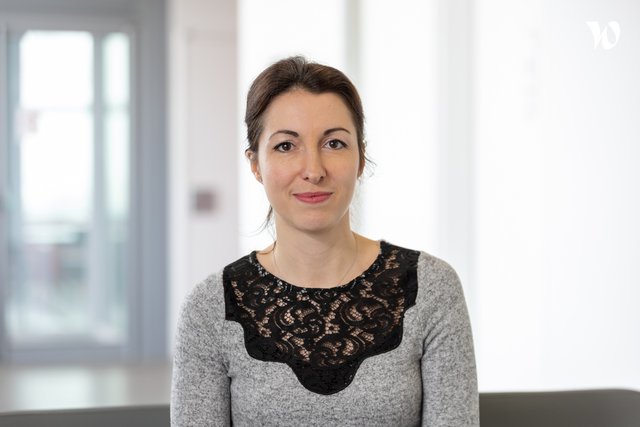
Rencontrez Mélanie, Ingénieur d’études
D’autres offres vous correspondent !
Ces entreprises recrutent aussi au poste de “Recherche fondamentale et appliquée”.


